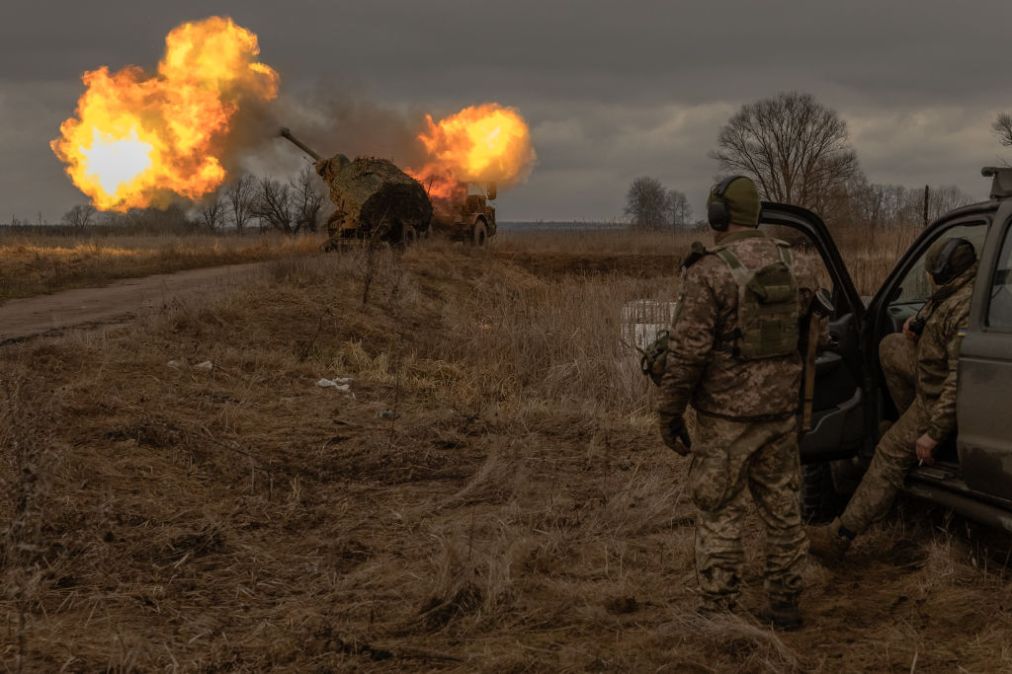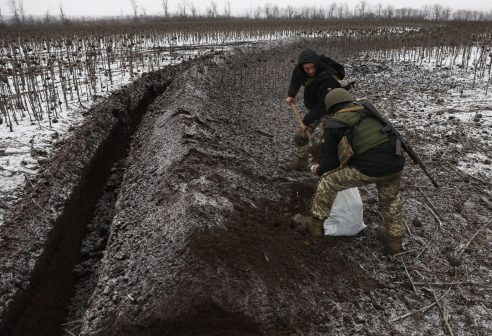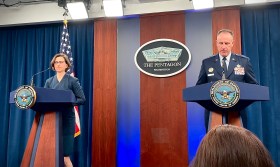Nations form new ‘capability coalitions’ to help confront Ukraine’s long-term military needs

Certain nations participating in the U.S.-led Ukraine Defense Contact Group (UDCG) are launching six new “capability coalitions” to help strengthen the Ukrainian military’s air force, ground-based air defenses, artillery, maritime security, de-mining and information technology assets as it continues to combat Russian aggression, according to senior Pentagon officials.
Plans for these coalitions’ establishment and functions were in focus at the 18th UDCG meeting on Tuesday, which Defense Secretary Lloyd Austin hosted virtually from his home where he’s recovering from complications associated with prostate cancer treatment that recently resulted in his secret hospitalization.
As chairman of the contact group, Austin has been hosting these meetings in-person on a monthly basis with dozens of international counterparts in the U.S. and abroad since April 2022 — shortly after Russia’s latest invasion of Ukraine.
The meetings are a venue through which the nations involved coordinate security assistance and international support for Kyiv’s military forces.
While the U.S. typically announces major investments and capabilities for Ukraine that are timed around UDCG meetings, the most recent international aid package proposing billions for the nation is currently held up in congressional limbo.
Still, on a call with reporters after attending the virtual UDCG meeting on Tuesday, Assistant Secretary of Defense for International Security Affairs Celeste Wallander said the forum allowed those involved to intensify their “common efforts to forge long-term security for Ukraine.”
“We focused today — a portion of the meeting — on Ukraine’s future force and the standing up of capability coalitions to support Ukraine’s defense forces. These important coalitions will build on the extensive work that we’ve already been doing in the contact group. They will sustain and deepen security assistance in the years ahead, working closely with Ukraine to create a formidable combat force that can defend against and deter future threats from Moscow,” she said.
Wallander continued: “We have already formed capability coalitions focused on Ukraine’s air force, artillery, maritime security, ground-based air defenses, de-mining and information technology. And today, Germany announced that it would lead the armor capability coalition and Latvia has announced that it will lead a drone coalition.”
Though he didn’t provide explicit details on the ultimate aim and intent, in his prepared remarks for the meeting attendees on Tuesday, Austin thanked Estonia, Germany, the U.K. and several other nations for committing to helping lead the new hubs.
He also said that he’s “proud that the United States is co-leading the artillery capability coalition, along with France, and also co-leading the air-force capability coalition, alongside Denmark and the Netherlands.”
Estonia and Luxembourg are leading the IT coalition, a Pentagon spokesperson told DefenseScoop on Wednesday
Wallander didn’t supply in-depth information about all the new coalitions’ impending pursuits, during her briefing with reporters — but she did mention that the drone-focused team will be looking at multi-domain and multifunctional aspects in which uncrewed aerial vehicles play an evolving role on the battlefield.
“The idea is to get ahead of the technological curve, to get ahead of the production curve, and to get ahead of the operational art curve — to be able to help the Ukrainians as they find new ways to use drones, and as they confront new ways that the Russians are using them against them,” she said.
Updated on Jan. 24, 2024, at 12:15 PM: This story has been updated to note that Estonia and Luxembourg are leading the IT coalition.





